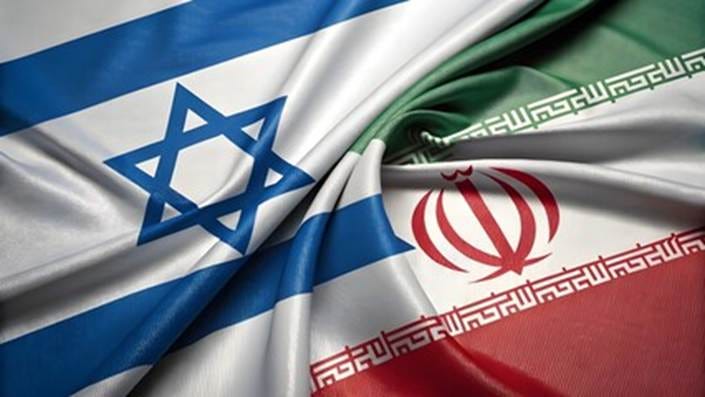A Ceasefire Built on Rubble – The U.S., Israel, and the High Price of Strategic Duplicity
You cannot bomb your way to trust. You cannot threaten your way to stability. And you cannot deceive your way to peace.
Published: 24 June 2025
The Middle East awoke today to a ceasefire—a rare and welcome moment of silence after weeks of destruction between Israel, Iran, and, eventually, the United States. Brokered by President Donald Trump, with likely direct involvement of Russia and China, the ceasefire announcement has been framed by some as a return to diplomacy. But the road here was paved with betrayal, impulsive militarism, and the collapse of America's credibility as a global leader.
Behind the curtain of diplomacy, this was a war of choices, not of necessity. And what has been gained now—after so much loss—could likely have been secured at the negotiating table weeks earlier, at far less cost.
From Diplomacy to Deception
In early June, the world saw what appeared to be a promising resumption of talks between the U.S. and Iran over the Islamic Republic’s nuclear program. Iranian enrichment was reportedly paused; IAEA inspections were back on the table; and Western diplomats cautiously voiced optimism.
Yet unbeknownst to Iran, a secret U.S.-Israel pact signed in March had already predetermined the outcome. Under the agreement, the two allies concluded that Iran’s nuclear infrastructure had to be neutralized—by force if necessary. While American diplomats negotiated in Vienna, military planners were already preparing to strike.
This dual-track approach wasn’t just cynical. It was reckless. The U.S. allowed Israel to act unilaterally—and then stepped back from the diplomatic process just in time to let the bombs fall. This was not diplomacy. It was entrapment.
From Proxy to Participant
The Israeli strikes on Iranian nuclear facilities ignited the firestorm many feared. Iran responded immediately, targeting Israeli military bases, cyber systems, and civilian infrastructure. In turn, Israel escalated with strikes on Iranian radar systems, missile depots, and refineries.
Then came the real breaking point: under the terms of the March agreement, Israel invoked U.S. military support. The United States complied, launching direct airstrikes against Iran’s secondary nuclear facilities.
And just like that, the United States was no longer a mediator. It was a combatant.
Iran responded in kind, targeting a U.S. airbase in the Gulf region—a strike apparently “announced” beforehand, perhaps as a gesture of restraint or deterrence rather than escalation. Still, the signal was unmistakable: this was now a direct conflict between Washington and Tehran.
A Hollow Ceasefire
Now, with much of Israel’s Iron Dome exposed as overstretched and vulnerable, and Iranian infrastructure damaged but not defeated, all sides have accepted a ceasefire. Trump, who had previously encouraged maximum pressure on Iran, emerged as the unexpected broker of peace. The irony is staggering.
But this ceasefire is not a diplomatic victory. It is a tactical timeout. And it raises a far deeper question: What exactly has been achieved?
Iran’s nuclear capabilities were not eliminated. Intelligence now suggests the key nuclear materials were moved before the strikes, rendering the bombings largely symbolic.
Israel sustained serious damage, both to its physical assets and its aura of invincibility.
The U.S. suffered reputational collapse, exposed for abandoning diplomacy midstream and joining a war it could not control.
And for what? A return to the negotiation table—now in far worse conditions.
The Cost of Strategic Impatience
The United States claims to be a global leader—of norms, stability, and diplomacy. Yet it continues to behave like a short-term tactician, driven by election cycles, ally appeasement, and fragmented policymaking. In this case, it simultaneously engaged in diplomacy, sanctioned war, and ended up entangled in a conflict that could have triggered global escalation.
This kind of foreign policy is not strategy. It is incoherence masquerading as toughness.
Worse, it signals to the world that the U.S. cannot be trusted to keep its word—not to adversaries, not even to allies. What nation would now enter into serious negotiations with Washington, knowing that today's handshake might be tomorrow's target map?
Conclusion: Peace Must Be Earned, Not Staged
The ceasefire announced today may bring relief, but it does not bring resolution. If anything, it exposes how deeply broken the U.S. approach to the Middle East remains. You cannot bomb your way to trust. You cannot threaten your way to stability. And you cannot deceive your way to peace.
What’s needed now is not a return to diplomacy—but a reinvention of it. Transparent, coherent, and consistent. That path was open just weeks ago. It can be reopened—if the U.S. is willing to choose it.
The Author is a strategic policy analyst with expertise in international security, multipolarity, and global South cooperation.




